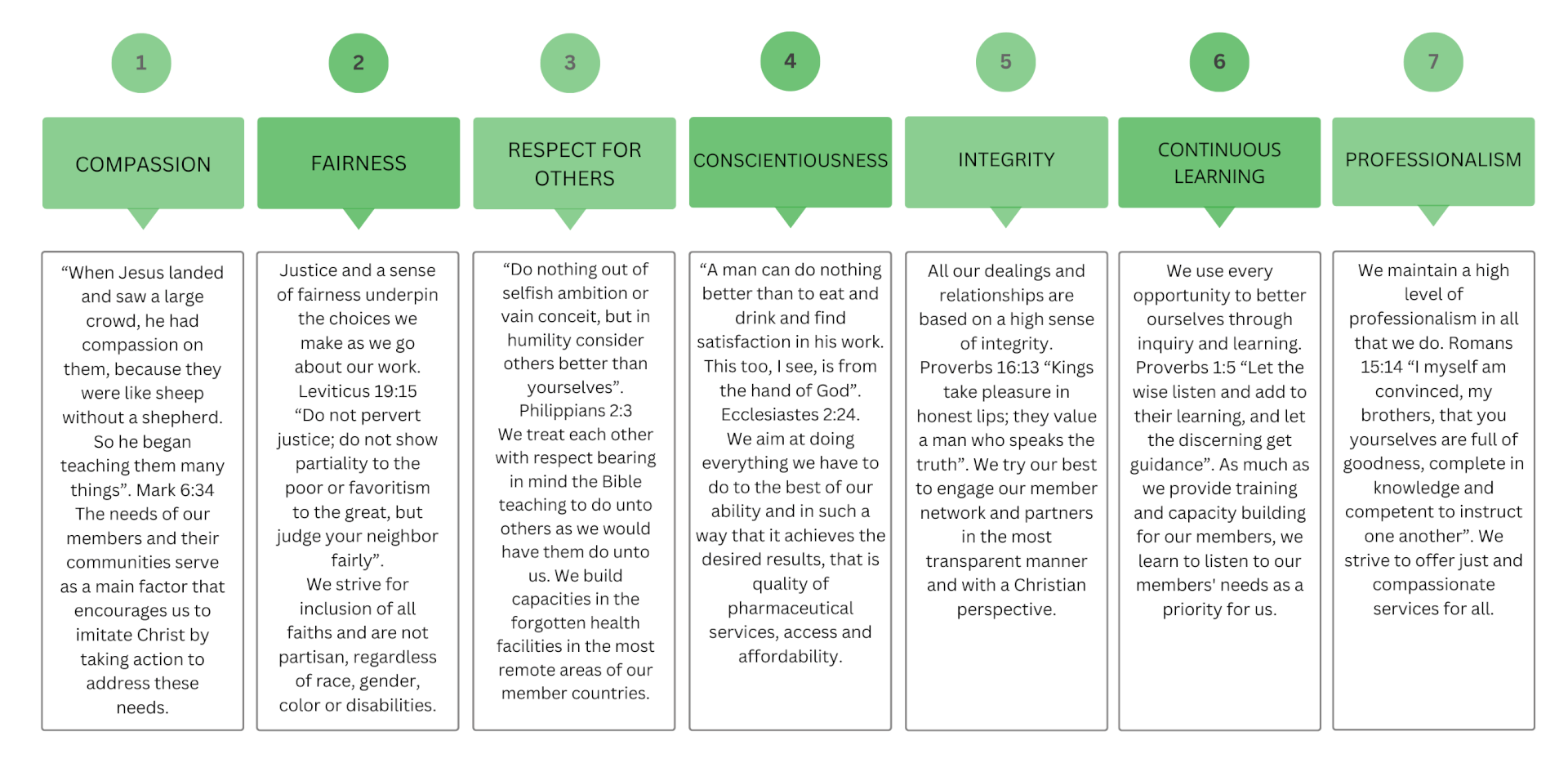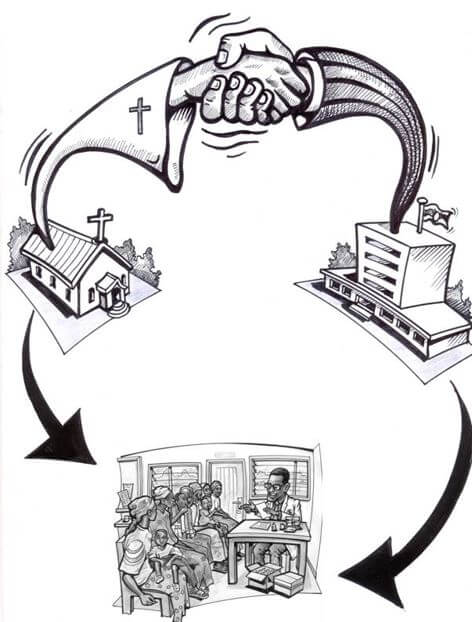In 1981, the Christian Medical Commission (CMC) of the World Council of Churches (WCC) assigned a pharmaceutical adviser to provide technical support in the area of pharmaceutical technical support to church health programmes in Africa. Later in 2000, the supported church health organizations jointly agreed to become a Network through membership. The Ecumenical Pharmaceutical Network (EPN) was then registered as a non-profit organization with a secretariat based in Nairobi, Kenya.
Today, EPN is a Christian non-profit organization comprising of members of healthcare providers and professionals. The majority of our members are Faith-Based Organizations (FBOs) that provide healthcare to communities in the most marginalized and remote areas where national government health services are limited.
Our network over time has grown to a total of 141 members in 38 countries: 32 Christian Health Associations (CHAs), 24 Health Systems Strengthening organizations, 18 Church Health Institutions (CHIs), 21 Drug Supply Organizations and 46 Individuals. More than 300 million people rely on health care provided by our network.

EPN values have their basis in Christian teachings, with the desire to uphold the following Christian virtues that enhance the dignity of humankind.


Church-based organizations are active in health care delivery in many parts of the world and specifically, in Low- and Middle-Income Countries (LMICs) which tend to be in the most hard to reach places. It is estimated, in many African countries, that church health facilities and faith-based pharmaceutical suppliers cater for over 40% of people living in rural areas. Church health institutions tend to bridge the healthcare services gaps left by the government and private sectors.
These church health institutions often struggle to recruit, train and retain health workers due to their location and low resource availability. Further, church health facilities tend to be overlooked by governments when allocating financial and medical commodities during national budgeting. Therefore, such facilities tend to operate with inadequate resources because their allocation comes from the Church and the generated revenue. Even with low resources, church health institutions tend to the medical needs of thousands of people sparsely settled and often the only health facility for miles.
Medicines are a cornerstone of many medical treatments and disease prevention. Access to quality-assured medicines and its rational use remains a big problem. EPN seeks to work with church systems to ensure that their pharmaceutical services are efficient and effective and are equipped to ensure the availability of affordable quality medicines to all who need them.
Access to quality pharmaceutical services is a fundamental human right.
Quality-assured medicines and its rational use is a guiding principle to quality pharmaceutical care.
With consistent support and training, church health facilities have the potential to offer world class pharmaceutical care.
Consistence practice of standard pharmaceutical guidelines strengthens health systems.
Strong health systems save lives. Always.
EPN runs programs across Africa in the following strategic areas:
Core Strategies;
Church Health Institutions (CHIs) are embedded as a vital part of their communities. CHIs have unique credibility and legitimacy with local populations in Sub-Saharan Africa. This closeness allows for health messages to be reinforced at the pulpit and the health facilities which ultimately maximizes the utilization of health care.
This is why:
Access to quality-assured medicines and its rational use is the foundation of treating any disease in a health facility.
This is why:
Addressing the various aspects of pharmaceutical services requires an efficient two-way flow of information from the secretariat to the network and vice-versa including among members and the network and the rest of the global health community.
This is why:
To learn more about our membership and details about membership application process, please visit our membership page or for inquiries, send an email to info@epnetwork.org.